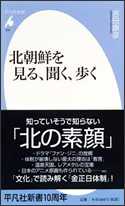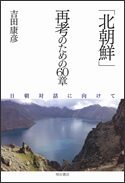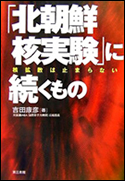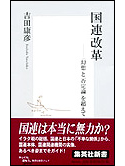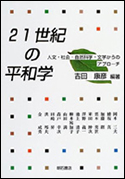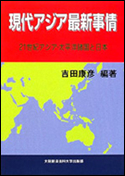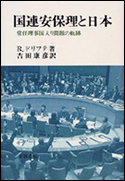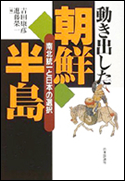【1】 KIM JONG-IL APPARENTLY SERIOUSLY ILL, WITH POSSIBLE OUTBREAK OF POST-KIM POWER STRUGGLE
The Korean Central News Agency reported on 4 October that Kim Jong-Il enjoyed watching a football game played by a Kim Il Sung University team in Pyongyang on the occasion of the 62nd anniversary of the university’s foundation. The game was between the Kim Il Sung University and the Pyongyang Railway University. The report did not refer to the date of his show-up. It was the first time in 51 days since 14 August, when he was last reported to have made a military inspection. No pictures were made public. It the report was authentic, Kim Jong Il recovered enough to go outdoors. The last record of his no show-up was 50 days during the Iraqi war in March-May 2003.
Reports of the stroke ---cerebral infarction or cerebral hemorrhage?which presumably hit him some time after 14 August, were widely circulated on and after 9 September, when a military parade to mark the 60th anniversary of the national foundation was staged in the Kim Il Sung Square in the heart of Pyongyang. Kim Jong Il did not show up to attend this important event.
Arthur Brown, a former CIA director in charge of East Asia, on the basis of his information, disclosed that Kim Jong Il was recovering steadily from the stroke, but was suffering from an after-effect of paralysis in the left hand and leg. He predicted that it would be difficult for the North Korean dictator to regain a complete recovery. However, he said, it is still premature to foretell whether post-Kim power struggle has emerged in Pyongyang, as long as Kim is alive and active. The former CIA director added economic reform with open market mechanism would be unlikely to introduced.
Other intelligence sources in Washington say that Kim Jong Il would finally survive, but might now be seriously ill, and seems no longer capable of passing sober political judgments, thus, sooner or later, triggering off power struggle for leadership and succession to the top post.
Reports from Beijing confirmed that a team of five Chinese doctors were called from Beijing to cure Kim Jong Il on bedside. Apparently, the brain operations were performed at the Bon Fa clinic in Pyongyang, where reports say black limousine cars were coming in and going out. In North Korea, black limousines are used exclusively by high-ranking party, government and military officials. However, Chinese authorities are tight-lipped.
On the other hand, South Korea’s National Intelligence Agency reported on 10 September that Kim Jong Il, though suffering from some paralysis in the right-side brain, was convalescing steadily and would be recuperated completely within 3-to-6 months. Agency sources also said Kim can now handle a teeth brush by himself to clean his teeth.
All in all, it seems inevitable for power struggle in some form or other to happen among senior leaders of the party and military involving Kim’s three sons?namely, Kim Jong Nam (the eldest son, 37 years old), Kim Jong Chol (the second son, 27), and Kim Jong Ung (the third son, 25), as prospective successor to the throne---the top post in the party and military. Some watchers forecast there might be a possibility of Kim Pyong Il, the 54-year-old eldest son by Kim Il Sung’s second wife, being picked up as a dark horse with a wide support from the military circles.
It is widely known that China opposes patrimonial succession of power as running counter to modern socialism. However, senior retired Chosen-Soren official in Tokyo admit that North Korea, a traditionally Confucian society, would find it comfortable and stable with a hereditary head occupying the top post in succession. Therefore, the official predict, any blood-linked family member is highly likely to be nominated as successor.
Under the present circumstances, the official say, Kim Jong Chol, the first son by Kim Jong Il’s third wife and Japan-born ex-dancer, who died of breast cancer in Paris in 2004, is a top candidate with strong support from the senior military leaders.
However, it is widely believed especially in Seoul that in the post-Kim Jong Il era, a collective leadership system would be functioning without causing any social and political disorder, with Chang Sung Taek, the ailing dictator’s brother-in-law, as a de facto core leader. Chang, once expelled from Pyongyang for alleged illegal conduct, is now a director in charge of administration within the ruling Workers’ Party.
【2】 US-DPRK RELATIONS DEADLOCKED OVER DENUCLEARIZATION ISSUE
Relations between Pyongyang and Washington have made no progress since 26 June 2008, when President George Bush announced his decision to remove the DPRK from the list of terrorist-sponsoring states. Under the domestic law, the removal was to take effect 45 days after he informed the Congress of his decision, unless it decides otherwise. 45 days afterward, it was 11 August. Nothing happened. The Bush Administration demanded on-side verification mechanism, urging Pyongyang to accept inspection of plutonium stocks on the list of the existing nuclear programs in accordance with the international standard, namely the IAEA safeguard system.
From Pyongyang’s viewpoint, on-site verification is unacceptable, since management of all nuclear materials is under the military control. The IAEA has no authority to make an inspection in military bases of its member states. Nothing is mentioned in any official documents agreed upon in the six-party talks in Beijing. The only reference to verification is in the Joint Declaration of the Six-Party Talks in September 2005, which says; “Our common goal is to achieve a verifiable denuclearization of the Korean Peninsula.” Drawing the attention to the words “the Korean Peninsula,” and not “North Korea,” Pyongyang insists that US military bases in South Korea be inspected as well to verify that no nuclear war heads are deployed.
The Bush Administration is in a dilemma, sandwiched between the Congressional demand for verification on one hand, and Pyongyang’s insistence upon removal from the list of terrorist-sponsoring states as scheduled on the other. Christopher Hill, chief American negotiator, visited Pyongyang on 1-3 October for talks with his North Korean counterpart, Kim Kye-Gwan, with some compromise proposal. Apparently, no satisfactory solution has been found through their talks, but reports from Washington on 7 October indicated that the Bush Administration would finally be faced by a last-minute compromise to remove the DPRK from the terrorist list before January 2009.
In the meantime, the North Koreans are reportedly working on reversing the process of “disablement” in the existing nuclear facilities in Nyong Byong back to the original state, so as to annihilate the whole arrangements. American observation satellites also detect that there are moves apparently to prepare for a new nuclear test in Mustang Li near the Korean-Chinese border. All this seems to be a gesture to call the attention of Washington to come to compromise. What makes things complicated is whether these moves are on the order from Kim Jong Il himself or from the military leaders without the knowledge of the ailing dictator.
In any case, the Pyongyang leadership is obviously anticipating Barak Obama’s victory in the upcoming Presidential election on 4 November, because the Democrat Obama has been proposing a direct deal with Kim Jong Il to implement denuclearization of the Korean Peninsula. Kim Jong Il, once again in better health, would be jubilant over the victory of Obama, whom he regards as more accommodating. Christopher Hill, on his return from Pyongyang, visited Beijing via Seoul to report back to WU Dawei, Chairman of the six-party talks, to seek his advice. China’s influence on Pyongyang to sustain the shaky six-party agreements is solicited to avert total collapse.
【3】 NORTH-SOUTH RELATIONS STILL TENSE AND STRAINED
North-South relations have sharply worsened since President Lee Myung Bak was inaugurated in February 2008, and show no sign of improvement in the foreseeable future. The Workers’ Party organ, Nodong Shimmun, commented on 4 October that the Pyongyang-Seoul relations were on the verge of the worst danger.
North Korea’s media keep attacking Lee as betrayer and traitor against the Korean people. Lee, during his electoral campaign and after his victory, described the 10-year period under his two predecessors, Kim Dag Jung and Roh Moo Hyung, as the lost decade. Thus, Pyongyang refuses any official contact with Seoul, expelling all South Korean government officials from Kae Song, where the South’s industrial complex was being expanded as part of bilateral economic cooperation. Kae Song, an ancient Korean capital located just north of the demarcation line, is now open to tourists from the South, in addition to the industrial complex where 30,000 North Korean workers are employed with capital investment and technology of the Hyundai Group from the South. The Hyundai attempts to make the complex a Silicon Valley in Northeast Asia by the year 2012.
The only official contact was a meeting between both sides on defense and national security affairs, which was held in Pammunjon on 2 October, which however produced no positive outcome. Pyongyang even refuses receiving humanitarian food aid from Seoul, despite the fact that the North is suffering from perennial grain shortages.
One of the most recent topics which dominated the South’s media is the arrest in Seoul of a female intelligence agent, dispatched from the North to gather national security information. According to the media reports, the 34-year-old Won Jong Fa has slept nearly 100 South Korean military officers successfully to achieve her purpose, but finally surrendered herself to the police and confessed the truth, after falling in love seriously with one South Korean officer. She is now on trial. On the other hand, Pyongyang categorically denies the whole story as a fabrication.
Here is just a latest statistical figure. The Bank of Korea (Seoul) estimates North Korea’s gross domestic product (GDP), as at the end of 2007, at 20.3-billion US dollars, while that of the South at 969.9-billion dollars, 43 times. Percapita income of the North at 1,070,000 won, while that of the South at 18,620,000 won, 17 times.
At the same time, an accumulated sum of assistance and investments from the South to the North during the 10-year period from 1998 to 2007, as announced by Seoul’s Unification Ministry, is as follows;
Grant from the government 1,18l-billion won
Government loan for food 887-billion won
Low-interest loan from Government 585-billion won
Private fund for Kae Song Industrial Complex 206-billion won/ 16-million dollars
Private fund for Kum Gang Sam Tourist Industry
----Payment from Hyundai Group to NK government 428-billlion won
389-millkion dollars
----Investment on construction for hot spring resorts 157-billion won
142-million dollars
----Investment on golf course 100-billion won
----Payment to NK government as tourist entry fees 110-billion won
100-million dollars
Remittance to Kim Jong Il as fee for 2000 Summit 550-billion won
500-million dollars
________________________________________________________________________________
Total 4,901-billion won
1,147-million dollars
【4】 JAPAN-DPREK RELATIONS ALSO UNCHANGED WITH ANIMOSITY, DUE TO UNSETTLED ABDUCTION ISSUE
Relations between Tokyo and Pyongyang remain unchanged at the worst level, with tension and animosity against each other.
During the business-level talks in Shen Yang, northeast China, on 11-13 August, North Korea agreed to conduct re-investigation into the dragging-on abduction case, which, according to the Japanese diplomats, could lead to discovery of new Japanese abductees on North Korean soil. North Korea’s agreement was apparently in response to Washington’s imminent removal of Pyongyang from the list of terrorist-sponsoring nations. Washington, however, failed to implement the commitment, as stated above.
It was on 1st September that FUKUDA Takeo, suddenly and unexpectedly, announced his resignation as Prime Minister, after suffering a low popularity in public opinion polls and under pressure from within the Komei Party, a coalition group, as well as his own Liberal-Democratic Party. It dealt a heavy low for Ambassador Son Il Ho and the other North Korean officials in charge of Japan-DPRK relations, as FUKUDA was eager personally to normalize diplomatic ties with Pyongyang, which immediately announced that it would suspend preparations for the re-investigation, and watch Japan’s political moves.
Hawkish ASO Taro assumed power to succeed FUKUDA as Prime Minister on 25 September and is expected to dissolve the Lower House of Parliament for general elections sometime in October and early November.
In the meantime, the Japanese Government has decided to extend its economic sanctions against the DPRK for the fourth time for another six-month period from 13 October on, on the ground that there has been no progress in the abduction issue, as well as the nuclear and missile issues.
Despite such a rupture, a total of 500 pro-Pyongyang Korean residents in Japan returned home from August to September to attend national celebrations and meet their relatives and family members on the occasion of the 60th anniversary. They flew all by air via Beijing or Shen Yang, as a result of a drawn-out suspension of marine route due to Japan’s economic sanctions.
【5】 RUSSIA’S INFLUENCE LIMITED, BUT KEENLY INTERESTED IN TRANS-SIBERIA RAILWAY CONSTRUCTION
The Russian Federation is a member of the six-party talks in Beijing, but its presence is marginal in its political influence. The DPRK has used Russia only to maintain power balance in Northeast Asia, where the U.S. and China are predominant. The U.S. is a main counterpart of dialogue for North Korea and China is chairman.
Russia’s main concern at this stage is concentrated upon railway construction linking Russian Siberia with the Korean Peninsula. President Dmitry Medvedev was a host for talks with South Korean President Lee Myung Bak in Moscow and agreed to promote a 52-kilometer railway construction project on the Korean-Russian border. It is expected to be completed in early 2009, enabling trans-Siberian trains to transport a total of 100,000 20-square containers a year, from Bhusan on the southern tip of South Korea through North Korea to Europe. They agreed to implement the three-nation (North and South Korea, and Russia) joint venture with a budget of 140-million EURO.
South Korea agreed to share 40-perccent of total funds for construction. Seoul experts estimate total expenses for modernization of North Korean railways, mostly obsolete and old-fashioned, at 2.5-billion US dollars. North Korean is unable to undertake the modernization due to the lack of funds.
【6】 SOME OF THE LATEST TOPICS IN PYONGYANG
-----Construction work has been resumed in the Ryan Kyong Hotel, an abandoned highest building in Pyongyang, with a capital investment from Egypt’s largest Orascom
Industrial Group. Construction of the would-be ultra-modern hotel, 300 meters high with 105 stories, had been suspended since 1992, due to the shortage of fund and technical difficulties. The Orascom plans to invest a total of 400-million US dollars for the coming three years in Pyongyang’s urban projects as well as construction of a cement factory.
-----The use of mobile phones in Pyongyang was approved again in April 2008 for limited users, such as foreign diplomats, journalists and high-ranking party, government and military officials.
-----Influx of Chinese businessmen and tourists into North Korea is on a steady increase.
More than 80 percent of consumer goods, on sale in free markets in Pyongyang and elsewhere, are made in China, with exceptionally high-quality goods from Japan, mostly imported through China. Despite economic sanctions, world-renowned luxury goods, such as Rolex and Omega watches, as well as Scotch whiskey and French cognac, are available in souvenir shops and hotel bars in Pyongyang.
-----In Pyongyang, you can order beer with four different trade marks; Daedong-gang Beer, Ryong-song Beer, Bong-hak Beer, and Pyong-yang Beer, all brewed and produced with local capitals. Locally-manufactured liquor is also popular. There are Pyong-yang Liqueur, Gumgang-san Liqueur, Song-ak Ligueur, Dang-gun Liqueur, and Chyong-ok Liqueur.
-----North Korea shot two short-range missiles on the west coast toward the Yellow Sea on 7 October. South Korea expects that the shots will continue for several days as part of the anniversary celebrations to mark the Foundation of the Korean Workers’ Party. The 63rd anniversary falls on 10 October. Another interpretation is that the missile shots are in response to the on-going joint U.S;-South Korean military exercise, in which Japan’s Self-Defense Forces are also taking part.


